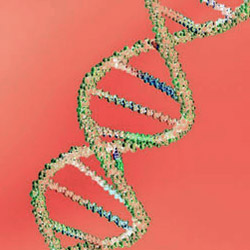
Heart disease is the number one cause of death among African American women. One of the key factors in heart disease among African American women is having hypertension (high blood pressure). Research has shown that there are many different factors that might contribute to hypertension. A family history indicates risk for hypertension and being overweight also contributes to rates of high blood pressure. In this study, the researchers used BMI and DNA testing to better understand the factors that influence high blood pressure in 1418 African American women and men.
BMI was calculated with measurements of height and weight. Any BMI reading of 25 or over is considered overweight and a BMI reading of 30 or higher is considered obese. Blood pressure was taken manually with a blood pressure cuff and stethoscope. Hypertension was categorized as an average blood pressure reading during the study visit greater than 140/90 mmHg or a previous diagnosis of hypertension.
Average age of the participants was approximately 63 years. The female participants had a higher BMI (32.7) than the male participants (29.1). The average blood pressure reading for women was 139.4/78.5 mmHg and for men was 136.2/81.5 mmHg. Eighty percent of female participants had already been diagnosed with high blood pressure and 78% were taking medication for high blood pressure. Among the male participants, only 73% had already been diagnosed with hypertension and 65% were taking medication for high blood pressure.
In DNA analysis, researchers found a relationship between hypertension, BMI, and specific parts of the DNA sequence called single nucleotide polymorphisms (SNPs), which are like typos in the DNA code that lead to differences among individuals. A correlation was found between 1 specific SNP (metallopeptidase 3 polymorphism rs679620) and BMI, but it was only present for women, not for men. Even more interesting, the results showed women with a high BMI who also had this SNP had a lower than normal diastolic blood pressure reading (bottom number). However, for women with a low BMI as well as the SNP, a higher than normal diastolic blood pressure reading was found.
With the results from this study, we are closer to better understanding genetic and environmental factors that impact high blood pressure in African American women. More research is needed across the entire DNA sequence to further investigate the influence of genes and BMI on high blood pressure in African American populations.
Written by Michael Delossantos, Visiting Student in Research.